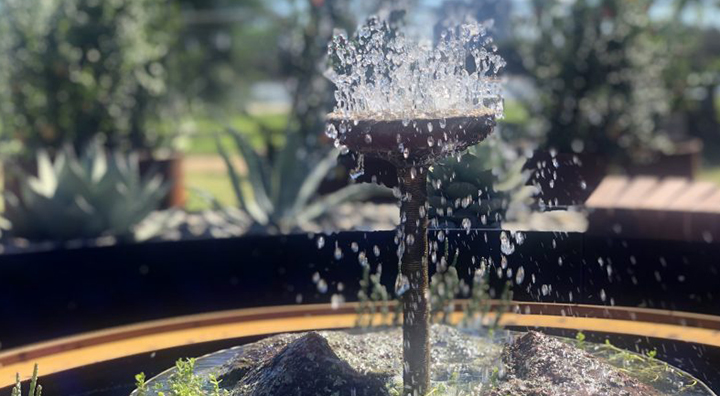
Here are a few things to consider when deciding if a solar pump is right for your setup.
Environmentally friendly and energy efficient, solar pumps make an appealing alternative for those seeking to make their ponds and water features as ‘green’ as possible.
Despite their benefits, solar pumps aren’t always the best choice for every situation. Here are a few things to consider when deciding if a solar pump is suitable for your setup.
They still need a bit of backup
Living in australia, we enjoy a lot more sunshine than many other parts of the world, but even we can’t expect continually cloudless weather. If solar pumps don’t have battery backups, they will only run during sunlight hours and on overcast days your pump will struggle to run at full capacity if at all. Though you will save energy on a pump that doesn’t need to be hooked up to the grid, many solar pumps will still require battery power (and replacement batteries) to be effective.
A pricier option
While solar technology is constantly evolving, at present, solar pumps are far more expensive than traditional pumps that offer similar performance. People passionate about having an energy efficient eco-friendly home will likely see the additional cost as being worth the benefits. For others, it may ultimately be more economical to run a low voltage (around 240v) well-designed pump than its solar counterpart.
Not the best fit for every situation
Even the best solar pumps are not practical for features such as fish ponds which require constant 24/7 air circulation in order to remain happy and healthy. However, solar pumps can be a good choice for small stand-alone water features or bird baths, as they will prevent water from becoming stagnant. They can also be used for hydroponic and some aquaponic systems, so are perfect for those seeking a sustainable organic garden feature. Be aware that most small solar pumps are designed for clean and clear water so if they are used in a pond environment with suspended debris and organic matter you will need to use a pre-filter.
Another advantage of solar pumps is that they can allow for more flexibility in your pond or water feature placement. They don’t require power cords or electrical outlets in order to function – just exposure to consistent sunlight. Their low voltage also makes solar pumps a safer option for homes with children and pets!
Troubleshooting guide for best performance
If your solar panel is positioned a reasonable distance from your pump, be careful not to overextend your connecting cable. This increases the resistance in the cable, resulting in a voltage drop and reduced pump performance. Extension cables are available for most solar pumps, however, we recommended that cables are only extended by a maximum of 10m and that a compatible cable is used.
Some solar pumps have a low-level water sensor and so won’t operate unless underwater – an important fact to remember if attempting to test your pump out of water.
Solar pumps are powered by dc current, meaning they can also run directly off 12 or 18v batteries, including those used for cars and caravans. This may void your warranty so be sure to check before hooking it up!
Finally, like all pumps, solar pumps need to be maintained and periodic cleaning is essential to long life and optimum performance.
If you would like to know more about solar pumps or determine whether a solar pump would work in your setup, please don’t hesitate to contact our friendly team.
